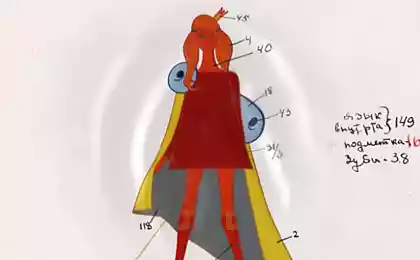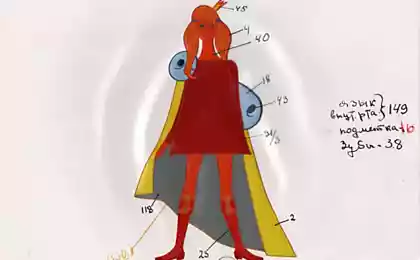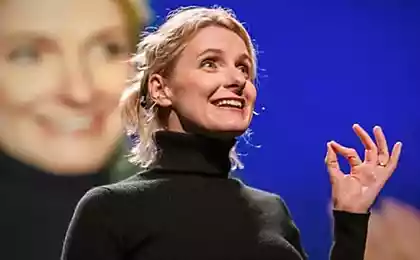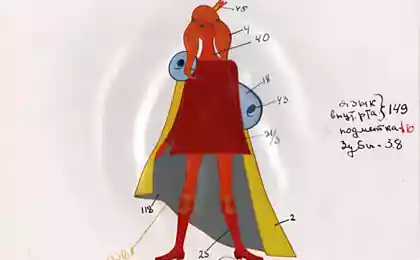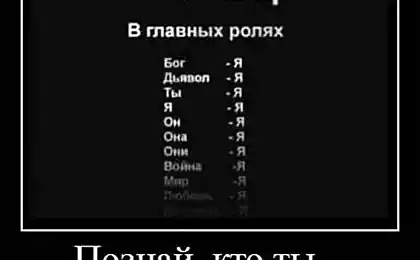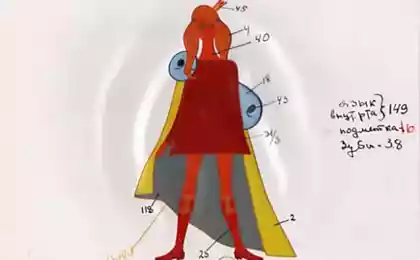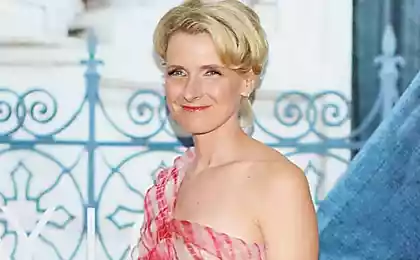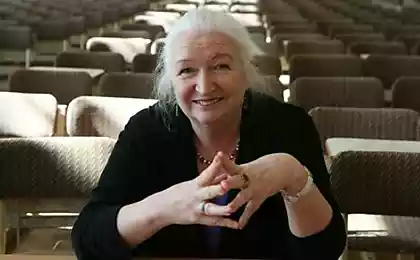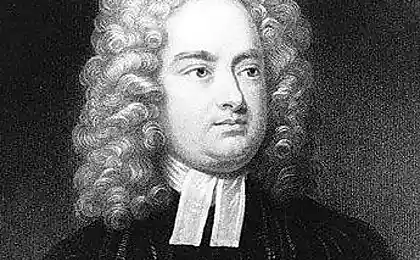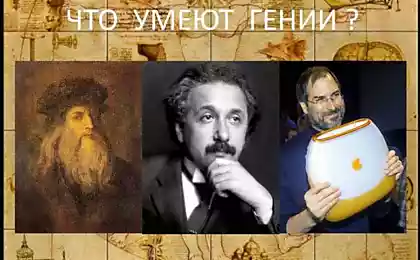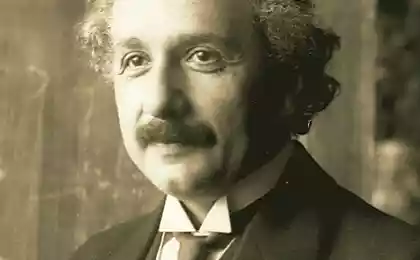502
Nature of genius: how musicians and athletes become great
Any science one way or another, confronted with the eternal debate — what is more important in personality development: nature or nurture?
Proponents of both views tend to reduce this argument to unambiguous answers, but, fortunately, recent studies have shown that the situation is a little different. It turns out that we are quite capable ourselves to change who we will become.
We offer a translated excerpt from the new book well-known business coach, Myles Downey, "the Genius in all of us" about the history of these points of view, secrets of the genius of Mozart and how human genes react to its external environment.
Six million two hundred forty four thousand seven hundred twenty three
Disputes about the priority of one over the other, the interrelation and interaction of nature and nurture on each other began in the mid-nineteenth century with the work of Francis Galton. In simplified form, nature is all innate qualities of personality, its genetic heritage, and education — it is the external elements, social and cultural that affect the way people: how he is treated by parents, what and how it is taught in school and University, what is life and how are his relationships with others.
Radicals standing on the side of nature and is passionate about biopsychologie, say, for example, that all features of human behavior, down to the smallest traits, is not that other, as the result of evolution. Nothing strange in this point of view there, especially when you consider that one of its first and most ardent advocates, Francis Galton, was a cousin of Charles Darwin.
On the other side are the behaviorists, convinced that all human behavior is determined primarily by its existence in a social environment. One of the most striking and well-known supporters of this idea — an English educator and philosopher John Locke (1632-1704). Studying personality since she was born, he came to the conclusion that the consciousness of the child in the womb is a tabula rasa, i.e. blank slate, something pristine and untouched, with time filled in by experience. This idea is directly opposite to the idea that some knowledge is inherent in us from birth — and by nature itself.
Behaviorist carrot and stick, and the desire to please the boss are still the main drivers of management.
The idea of the priority of nature prevailed in society until the mid-twentieth century. To understand why, it is enough to imagine the cultural and social atmosphere of the era. The idea that man himself is able to influence what he will become in the future, were too revolutionary to be accepted with ease. People had to know their place in society, otherwise the workers would refuse to work in the fields and in the factories, soldiers die on the battlefield, the servants — respect the rich and powerful. Even in the second half of the century behaviorist carrot and stick, and the desire to please his superiors remained — and still remain — the main drivers of management. Few people seriously care about creating employees intrinsic motivation and providing them with opportunities for growth.
Ten years
A real breakthrough, which defined the impasse that occurred with the appearance of the work of Swedish psychologist Anders Ericsson and his colleagues, entitled "the Role of deliberate practice in achieving outstanding results."
Nineteen million nine hundred sixty eight thousand six hundred sixty
Anders Ericsson in his office
The study was based on the experience gained scientists working on the project American University Carnegie Mellon, examines the characteristics of the memory. With the help of William chase and some anonymous average student Eriksson ran a significant development zapominaniya skills. The results showed that with the right choice of the methodology and sufficient intensity of training subjects are able to remember and reproduce from memory up to 80 numbers. Biological characteristics had nothing to do with this ability. This discovery became for Erikson the beginning of a long — length in 30 years — way to promote the concept of talent and convinced many doubters.
Those who were previously considered gifted, was a workaholic, whose main advantage was the ability to persistently and methodically to deal with.
Later — in 1991 at the University of Florida — he spent perhaps the most famous of his research. The experimental group consisted of students of the violin Department of the Berlin Academy of music. Together with two colleagues Eriksson tried to determine which factors cause the highest achievements in art. That was the experiment. The students were divided into three groups in accordance with their qualifications. The first group includes the best of the best — violinists, which predicted a unique solo career and worldwide recognition. Second, students whose abilities allow them to count on a place in the most famous orchestras. In the third — potential teachers. After a long and informative interview, the researchers found what he was looking for: it turned out that the most extraordinary talents to its 20-year anniversary had over ten years of match practice — an average of about 10 thousand hours of exercise and rehearsals. All, without exception. The second group could boast of thousands of 8 hours, and the third only 4 thousands (again, on average). Those who were previously considered gifted, was a workaholic, whose main advantage was the ability to persistently and methodically to deal with.
Similar studies were subsequently undertaken again and again: the experimental group composed of representatives of various spheres of human activity. But the results were unchanged. Thanks to the work of Ericsson in everyday life, psychologists are firmly of the ten-year rule, or the rule of 10 thousand hours. As he said in his BBC interview British track and field athlete Mohamed Farah who won two gold medals at the Olympic games 2012 in London (including the race at 10 thousand feet), "the secret of success — hard work and dedication».
A musical genius
As an example of the individual genius and gifted (i.e., one that demonstrates her talent from early childhood, becoming more virtuosic without any special training) very much like to bring Mozart. He didn't get up from the piano when he was three years old, wrote his first work in five years and went on a tour of Europe when he was six.
Thirty one million one hundred thirty six thousand two hundred forty five
Wolfgang Amadeus Mozart with his sister and father
But look how many interesting things you can learn by looking at his biography a little more closely. For starters his older sister Maria Anna, beautifully played on the harpsichord, due to constant training with his father. That is Mozart from early childhood I heard music and saw people constantly practicing for a musical instrument. Not surprisingly, once he began to repeat with my sister. Father of Wolfgang Amadeus, Leopold was a prominent musician, composer and teacher, and the teacher is highly progressive: his methods are very similar to the method of Suzuki (it seems not only to me but to all those interested in the issues of education). He started the music education of the son in the minute I saw his interest, and he has dedicated most of his life — with a stunning result. Not surprising, however, this result is not: a stepping stone to Mozart simply had no choice but to become a genius. And one more thing: some critics argue that the early works of Mozart are not so good compared to the more Mature that he began to write since I was 17, a little more than ten years after his debut.
Champion ping-pong
A similar story tells Matthew Led in his bestseller "the Leap." He became the best British player in ping-pong in 1995 when he was 24. This story is notable for at least two moments: thousands of hours of training and great luck.
Eighty three million eight hundred ninety thousand nine hundred fifty nine
Matthew Led as a child (right)
Matthew says that when he was eight years old (the family lived then in reading), my parents bought a ping pong table and put it in the garage. They are in this game have never played, so about any family traditions to speak of. Just they had very big garage compared to the neighbors, at least. First mate Matthew was his eldest brother Andrew. They are so enthusiastic about the game that did not leave the table for hours, testing each other, training their skills, and inventing new techniques. All these factors come together at one time in one place, and given Matthew the opportunity to train.
"Not even realizing that report, we carried out at the thousands and thousands of very happy hours", — he writes. Luck came in the form of local teacher Mr. Charters responsible for extra-curricular activities including — unbelievable but true — for table tennis. And he was one of the best, if not the best, English trainer and in this capacity was in charge of the local ping-pong club, where he called the brothers Led to play and train after school, on holidays and weekends. Guys are lucky to be born on earth, rich in talent, so train they had a chance not only with the local Champions, but also Champions of the country and even the world. Andrew managed to win three national Junior titles. Matthew's fate has prepared something special. It so happened that at this time legendary Chen Xinhua, perhaps the best player in the history of ping-pong — married a woman from Yorkshire and moved to this region. He was already retired, but seeing Matthew, agreed to train him. After this meeting the young man for many years remained the number one in England, three times champion of the Commonwealth and twice Olympic champion. By his own admission, had he been born just down the street, none of this would have happened. We are, however, interested not so much luck, how many years of hard training — as a key component of future success.
Genes and environment
However, you probably already guessed that in the confrontation between nature and nurture is not that simple. The first cloud, which eclipsed the rising sun supporters of education, have doubts about the fairness of the rules ten years. It turned out that someone with only 4 thousand hours, and someone was missing and 22 thousand. Such examples have accumulated more and more, and eventually started exception to disprove the rule. It turned out that, if you take two people, one of which has a clear aptitude for a particular occupation and the other does not, and train them on the same program, the first will progress much faster than the second. So it's not just in practice.
Then everything gets even more — to the point that, at first glance, some of the points even contradict each other. Stefan Holm is a Swedish athlete high jumper — spent many years on a grueling workout, wanting to bring his technique to perfection. Despite large for the chosen sport, body type, Stefan is a vivid example of the rules a decade: in 2004, he became the gold medalist of the Olympic games. So education is the key to success? So, Yes not so. Than, say, to explain the phenomenon by Donald Thomas, player of the basketball team Lindenbusch University, which, having neither proper equipment nor any significant training easily exceeds 2 meters 21 centimeters, and quite unexpectedly for himself? In the same year he was invited to the national team of the Bahamas, and in 2007 at the world Championships he was ahead of Stefan Holm in the battle for first place. The secret of success Donald was the abnormal length of the Achilles tendon, so he jumped as if on springs: the chords themselves pushed the body up. His story is a clear argument in favor of the superiority of nature. Both athletes were the brightest figures of his time, has reached the top of sport Olympus. But they get there very different paths.
Seventy one million two hundred thirty four thousand ninety eight
Donald Thomas
Reading this, you must be thinking that these two fates — a vivid example of the old world as a confrontation "nature or nurture» even in a sense, its culmination. But things are not quite right. The word "or" means that we have to choose one or the other, leave both options we have no right. Those who believe in nature, believe genes are a kind of project, which then personality. Supporters of education, by contrast, deny the existence of any genetic predisposition. But neither those nor others do not take into account the fact that the genes themselves are able to respond to the environment.
Here is what they write in one of the articles of the draft Enabling Genius Lino Paso Pamphilon and Tamara Kutrin Millan:
"After the draft human Genome in 2003, scientists realized that the man about 20 500 genes (about the same as the mouse) and that the genome is only a small component of the evolving personality. Much more important is the role of secondary, epigenetic factors. Epigenetics is associated with the chemical changes directly affecting the DNA sequence. Essentially it determines how the genes react to a specific environment. Researchers often compare genetics with the keyboard of a piano: the melody, which happens as a result depends on which keys and how we click. Someone will hear a concert of Mozart, some discordant gamma recently started to learn to play neighbor."
Flow
Can't end this Chapter without telling you about another aspect of higher achievements, that is currently being investigated very actively, so — called thread. Flow is a special state of the psyche, different from the genetic fixed installation, in that it can be turned on and off. Many years ago my wife Jo as a gift for a birthday paid for my courses on control of the glider. With aircraft I was a little familiar, because a child often flew with his father, he was a licensed pilot and was a small Amateur club, located on the outskirts of Dublin airport. He first took to the skies in 20: during the Second world war he happened to be flying "Spitfires" and "Hurricanes" machine legendary and in all respects extraordinary.
One day he was shot down in the skies over Normandy, and he was saved only by a miracle, getting out of a burning plane at the last moment. The sky was in his blood, and every flight he perceived as a special event and is extremely important. I think it's inherited, so the gift Joe gave me a storm of emotions.
Flying gliders differ from flying on airplanes — at least the fact that in case of an error the pilot has no engine with which this error could be corrected. Just weaken the attention, and that the apparatus has been deviated from the desired course and is rapidly losing altitude. Distracted stronger — and without a parachute is not enough. The instructor taught me on the go — during a training flight, opening the mouth only when it was really necessary, because thanks to his father piloting experience I already had. Nevertheless, every time you hear the voice of the instructor, I was distracted.
And then one day we just practiced turning and landing — he suddenly realized this and threw the phrase in the middle: "Yeah, *** [damn it], just fly!"And I flew. He got me released. Completely gave me control. I was extremely focused and relaxed, became one with his glider. And entering a turn, almost lost height. This is the state of flux. The moment when the genius reaches its peak.
The term "flow" was first proposed by American scholar Mihaly Csikszentmihalyi's book "flow: the Psychology of optimal experience", released in 1990, when he headed the Department of psychology, University of Chicago. Here is how he describes the flow:
"To be fully involved in the activity for its own sake. The ego falls away. Time flies. Every action, movement and thought follows from the previous one, like playing jazz. Your whole being is involved, and you apply your skills to the limit". It is the use of all their skills to the limit and makes the thread state is so important in achieving higher results."
Also interesting: the Savant Syndrome: how little we know our brain or 10 incredible stories of genius
Laziness as a sign of genius. 4 types of laziness and the need to deal with it
We can change who we will become. Every moment of our life, every action in varying degrees, controlled by a consciousness and a stream of neither here nor there, because this mode is enabled, everyone can.
In the "equation genius" at least three variables:
Two of them we can identify ourselves, so an excuse like "I am what I am" — nothing more than a vulgar sophism.
From the book by Myles Downey, "the Genius in all of us»
P. S. And remember, just changing your mind — together we change the world! ©
Source: theoryandpractice.ru/posts/13730-enabling-genius
Proponents of both views tend to reduce this argument to unambiguous answers, but, fortunately, recent studies have shown that the situation is a little different. It turns out that we are quite capable ourselves to change who we will become.
We offer a translated excerpt from the new book well-known business coach, Myles Downey, "the Genius in all of us" about the history of these points of view, secrets of the genius of Mozart and how human genes react to its external environment.
Six million two hundred forty four thousand seven hundred twenty three
Disputes about the priority of one over the other, the interrelation and interaction of nature and nurture on each other began in the mid-nineteenth century with the work of Francis Galton. In simplified form, nature is all innate qualities of personality, its genetic heritage, and education — it is the external elements, social and cultural that affect the way people: how he is treated by parents, what and how it is taught in school and University, what is life and how are his relationships with others.
Radicals standing on the side of nature and is passionate about biopsychologie, say, for example, that all features of human behavior, down to the smallest traits, is not that other, as the result of evolution. Nothing strange in this point of view there, especially when you consider that one of its first and most ardent advocates, Francis Galton, was a cousin of Charles Darwin.
On the other side are the behaviorists, convinced that all human behavior is determined primarily by its existence in a social environment. One of the most striking and well-known supporters of this idea — an English educator and philosopher John Locke (1632-1704). Studying personality since she was born, he came to the conclusion that the consciousness of the child in the womb is a tabula rasa, i.e. blank slate, something pristine and untouched, with time filled in by experience. This idea is directly opposite to the idea that some knowledge is inherent in us from birth — and by nature itself.
Behaviorist carrot and stick, and the desire to please the boss are still the main drivers of management.
The idea of the priority of nature prevailed in society until the mid-twentieth century. To understand why, it is enough to imagine the cultural and social atmosphere of the era. The idea that man himself is able to influence what he will become in the future, were too revolutionary to be accepted with ease. People had to know their place in society, otherwise the workers would refuse to work in the fields and in the factories, soldiers die on the battlefield, the servants — respect the rich and powerful. Even in the second half of the century behaviorist carrot and stick, and the desire to please his superiors remained — and still remain — the main drivers of management. Few people seriously care about creating employees intrinsic motivation and providing them with opportunities for growth.
Ten years
A real breakthrough, which defined the impasse that occurred with the appearance of the work of Swedish psychologist Anders Ericsson and his colleagues, entitled "the Role of deliberate practice in achieving outstanding results."
Nineteen million nine hundred sixty eight thousand six hundred sixty
Anders Ericsson in his office
The study was based on the experience gained scientists working on the project American University Carnegie Mellon, examines the characteristics of the memory. With the help of William chase and some anonymous average student Eriksson ran a significant development zapominaniya skills. The results showed that with the right choice of the methodology and sufficient intensity of training subjects are able to remember and reproduce from memory up to 80 numbers. Biological characteristics had nothing to do with this ability. This discovery became for Erikson the beginning of a long — length in 30 years — way to promote the concept of talent and convinced many doubters.
Those who were previously considered gifted, was a workaholic, whose main advantage was the ability to persistently and methodically to deal with.
Later — in 1991 at the University of Florida — he spent perhaps the most famous of his research. The experimental group consisted of students of the violin Department of the Berlin Academy of music. Together with two colleagues Eriksson tried to determine which factors cause the highest achievements in art. That was the experiment. The students were divided into three groups in accordance with their qualifications. The first group includes the best of the best — violinists, which predicted a unique solo career and worldwide recognition. Second, students whose abilities allow them to count on a place in the most famous orchestras. In the third — potential teachers. After a long and informative interview, the researchers found what he was looking for: it turned out that the most extraordinary talents to its 20-year anniversary had over ten years of match practice — an average of about 10 thousand hours of exercise and rehearsals. All, without exception. The second group could boast of thousands of 8 hours, and the third only 4 thousands (again, on average). Those who were previously considered gifted, was a workaholic, whose main advantage was the ability to persistently and methodically to deal with.
Similar studies were subsequently undertaken again and again: the experimental group composed of representatives of various spheres of human activity. But the results were unchanged. Thanks to the work of Ericsson in everyday life, psychologists are firmly of the ten-year rule, or the rule of 10 thousand hours. As he said in his BBC interview British track and field athlete Mohamed Farah who won two gold medals at the Olympic games 2012 in London (including the race at 10 thousand feet), "the secret of success — hard work and dedication».
A musical genius
As an example of the individual genius and gifted (i.e., one that demonstrates her talent from early childhood, becoming more virtuosic without any special training) very much like to bring Mozart. He didn't get up from the piano when he was three years old, wrote his first work in five years and went on a tour of Europe when he was six.
Thirty one million one hundred thirty six thousand two hundred forty five
Wolfgang Amadeus Mozart with his sister and father
But look how many interesting things you can learn by looking at his biography a little more closely. For starters his older sister Maria Anna, beautifully played on the harpsichord, due to constant training with his father. That is Mozart from early childhood I heard music and saw people constantly practicing for a musical instrument. Not surprisingly, once he began to repeat with my sister. Father of Wolfgang Amadeus, Leopold was a prominent musician, composer and teacher, and the teacher is highly progressive: his methods are very similar to the method of Suzuki (it seems not only to me but to all those interested in the issues of education). He started the music education of the son in the minute I saw his interest, and he has dedicated most of his life — with a stunning result. Not surprising, however, this result is not: a stepping stone to Mozart simply had no choice but to become a genius. And one more thing: some critics argue that the early works of Mozart are not so good compared to the more Mature that he began to write since I was 17, a little more than ten years after his debut.
Champion ping-pong
A similar story tells Matthew Led in his bestseller "the Leap." He became the best British player in ping-pong in 1995 when he was 24. This story is notable for at least two moments: thousands of hours of training and great luck.
Eighty three million eight hundred ninety thousand nine hundred fifty nine
Matthew Led as a child (right)
Matthew says that when he was eight years old (the family lived then in reading), my parents bought a ping pong table and put it in the garage. They are in this game have never played, so about any family traditions to speak of. Just they had very big garage compared to the neighbors, at least. First mate Matthew was his eldest brother Andrew. They are so enthusiastic about the game that did not leave the table for hours, testing each other, training their skills, and inventing new techniques. All these factors come together at one time in one place, and given Matthew the opportunity to train.
"Not even realizing that report, we carried out at the thousands and thousands of very happy hours", — he writes. Luck came in the form of local teacher Mr. Charters responsible for extra-curricular activities including — unbelievable but true — for table tennis. And he was one of the best, if not the best, English trainer and in this capacity was in charge of the local ping-pong club, where he called the brothers Led to play and train after school, on holidays and weekends. Guys are lucky to be born on earth, rich in talent, so train they had a chance not only with the local Champions, but also Champions of the country and even the world. Andrew managed to win three national Junior titles. Matthew's fate has prepared something special. It so happened that at this time legendary Chen Xinhua, perhaps the best player in the history of ping-pong — married a woman from Yorkshire and moved to this region. He was already retired, but seeing Matthew, agreed to train him. After this meeting the young man for many years remained the number one in England, three times champion of the Commonwealth and twice Olympic champion. By his own admission, had he been born just down the street, none of this would have happened. We are, however, interested not so much luck, how many years of hard training — as a key component of future success.
Genes and environment
However, you probably already guessed that in the confrontation between nature and nurture is not that simple. The first cloud, which eclipsed the rising sun supporters of education, have doubts about the fairness of the rules ten years. It turned out that someone with only 4 thousand hours, and someone was missing and 22 thousand. Such examples have accumulated more and more, and eventually started exception to disprove the rule. It turned out that, if you take two people, one of which has a clear aptitude for a particular occupation and the other does not, and train them on the same program, the first will progress much faster than the second. So it's not just in practice.
Then everything gets even more — to the point that, at first glance, some of the points even contradict each other. Stefan Holm is a Swedish athlete high jumper — spent many years on a grueling workout, wanting to bring his technique to perfection. Despite large for the chosen sport, body type, Stefan is a vivid example of the rules a decade: in 2004, he became the gold medalist of the Olympic games. So education is the key to success? So, Yes not so. Than, say, to explain the phenomenon by Donald Thomas, player of the basketball team Lindenbusch University, which, having neither proper equipment nor any significant training easily exceeds 2 meters 21 centimeters, and quite unexpectedly for himself? In the same year he was invited to the national team of the Bahamas, and in 2007 at the world Championships he was ahead of Stefan Holm in the battle for first place. The secret of success Donald was the abnormal length of the Achilles tendon, so he jumped as if on springs: the chords themselves pushed the body up. His story is a clear argument in favor of the superiority of nature. Both athletes were the brightest figures of his time, has reached the top of sport Olympus. But they get there very different paths.
Seventy one million two hundred thirty four thousand ninety eight
Donald Thomas
Reading this, you must be thinking that these two fates — a vivid example of the old world as a confrontation "nature or nurture» even in a sense, its culmination. But things are not quite right. The word "or" means that we have to choose one or the other, leave both options we have no right. Those who believe in nature, believe genes are a kind of project, which then personality. Supporters of education, by contrast, deny the existence of any genetic predisposition. But neither those nor others do not take into account the fact that the genes themselves are able to respond to the environment.
Here is what they write in one of the articles of the draft Enabling Genius Lino Paso Pamphilon and Tamara Kutrin Millan:
"After the draft human Genome in 2003, scientists realized that the man about 20 500 genes (about the same as the mouse) and that the genome is only a small component of the evolving personality. Much more important is the role of secondary, epigenetic factors. Epigenetics is associated with the chemical changes directly affecting the DNA sequence. Essentially it determines how the genes react to a specific environment. Researchers often compare genetics with the keyboard of a piano: the melody, which happens as a result depends on which keys and how we click. Someone will hear a concert of Mozart, some discordant gamma recently started to learn to play neighbor."
Flow
Can't end this Chapter without telling you about another aspect of higher achievements, that is currently being investigated very actively, so — called thread. Flow is a special state of the psyche, different from the genetic fixed installation, in that it can be turned on and off. Many years ago my wife Jo as a gift for a birthday paid for my courses on control of the glider. With aircraft I was a little familiar, because a child often flew with his father, he was a licensed pilot and was a small Amateur club, located on the outskirts of Dublin airport. He first took to the skies in 20: during the Second world war he happened to be flying "Spitfires" and "Hurricanes" machine legendary and in all respects extraordinary.
One day he was shot down in the skies over Normandy, and he was saved only by a miracle, getting out of a burning plane at the last moment. The sky was in his blood, and every flight he perceived as a special event and is extremely important. I think it's inherited, so the gift Joe gave me a storm of emotions.
Flying gliders differ from flying on airplanes — at least the fact that in case of an error the pilot has no engine with which this error could be corrected. Just weaken the attention, and that the apparatus has been deviated from the desired course and is rapidly losing altitude. Distracted stronger — and without a parachute is not enough. The instructor taught me on the go — during a training flight, opening the mouth only when it was really necessary, because thanks to his father piloting experience I already had. Nevertheless, every time you hear the voice of the instructor, I was distracted.
And then one day we just practiced turning and landing — he suddenly realized this and threw the phrase in the middle: "Yeah, *** [damn it], just fly!"And I flew. He got me released. Completely gave me control. I was extremely focused and relaxed, became one with his glider. And entering a turn, almost lost height. This is the state of flux. The moment when the genius reaches its peak.
The term "flow" was first proposed by American scholar Mihaly Csikszentmihalyi's book "flow: the Psychology of optimal experience", released in 1990, when he headed the Department of psychology, University of Chicago. Here is how he describes the flow:
"To be fully involved in the activity for its own sake. The ego falls away. Time flies. Every action, movement and thought follows from the previous one, like playing jazz. Your whole being is involved, and you apply your skills to the limit". It is the use of all their skills to the limit and makes the thread state is so important in achieving higher results."
Also interesting: the Savant Syndrome: how little we know our brain or 10 incredible stories of genius
Laziness as a sign of genius. 4 types of laziness and the need to deal with it
We can change who we will become. Every moment of our life, every action in varying degrees, controlled by a consciousness and a stream of neither here nor there, because this mode is enabled, everyone can.
In the "equation genius" at least three variables:
- our genetic inheritance,
- our environment,
- the state of mind.
Two of them we can identify ourselves, so an excuse like "I am what I am" — nothing more than a vulgar sophism.
From the book by Myles Downey, "the Genius in all of us»
P. S. And remember, just changing your mind — together we change the world! ©
Source: theoryandpractice.ru/posts/13730-enabling-genius
